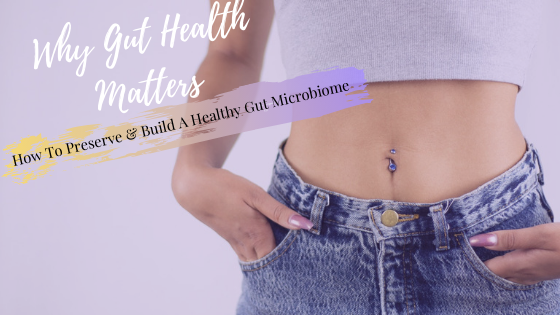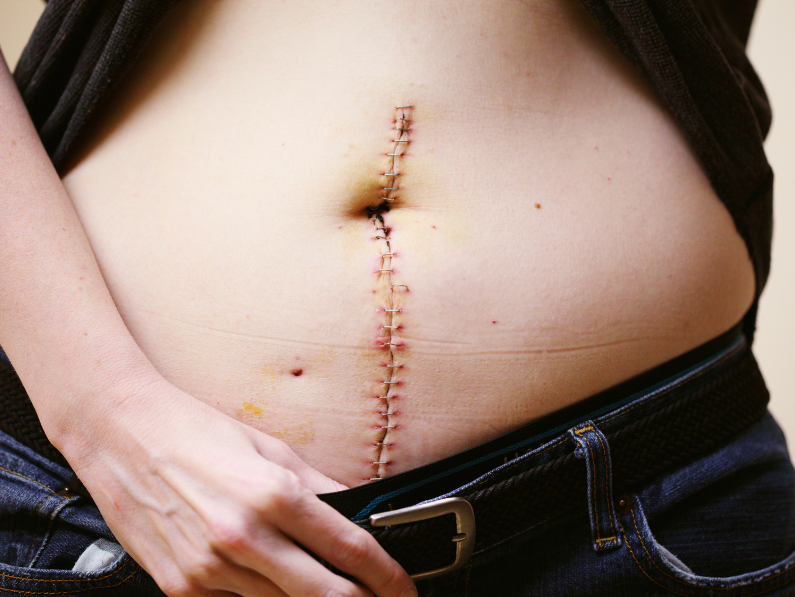Healthy gut, healthy life. Could it be true that the secret to health lies in the gut microbiome? Wasn’t it the famous Greek philosopher Hippocrates that stated: “All disease begins in the gut”. Many years later research is finally able to reveal the truth of this statement. In truth, there is so much that has been uncovered regarding the power of gut health. As a matter of fact, one of the most important discoveries is how gut health influences many key roles and functions within the body.
Page Contents
Key Roles of the Gut Microbiome
A healthy thriving gut microbiome is essential for the health and well-being of your body. Your gut is responsible for four things which are digestion, immunity, and cognitive function. This is why experiencing any type of imbalance in the gut flora can negatively impact your health.
Why Gut Microbiome Health & Diversity Matters
Gut dysbiosis or imbalances within the gut microbiome is a contributing factor in many health issues. For instance, digestive disorders, decreased immune function cognitive dysfunction, as well as chronic disease and inflammation, are complications associated with gut imbalance.

A Healthy Digestive System
In truth, digestion is important because we need to breakdown the food we consume so it can be used by the body. The healthy bacteria in the gut microbiome plays a key role in this process. Good bacteria in the gut flora have the ability to carry out metabolic functions to assist the digestive process. From producing vitamins, synthesizing amino acids, and breaking down non-digestible carbs. These functions allow for energy recovery and the absorption of nutrients.
Proper Immune System Function
Indeed when it comes to immunity the gut is the first barrier in protecting you from getting sick. Bacteria in the gut work to create a barrier which prevents the overgrowth of bad bacteria. Therefore an abundance of bad bacteria present in the gut increases the risk of infection and inflammation within the body.
High Functioning Gut-Brain Barrier
The Gut-Brain axis is how the gut and the brain are able to communicate with each other. The brain is responsible for sending neural and hormonal signals to the gut. An example is when the brain sends the signal to the gut to begin moving food through the gastrointestinal tract, commonly known as peristalsis. Similarly, the brain will signal the gut when it’s time to secrete digestive hormones that signal hunger and satiety.
Yet, this relationship between the gut and the brain isn’t completely one-sided. The gut has responsibilities which involve certain species of bacteria producing chemicals for the brain called neurotransmitters. In other words, these neurotransmitters are produced in the gut and then utilized in the brain. One such chemical produced in the gut is serotonin. This neurotransmitter is responsible for regulating mood, social behavior, appetite, digestion, and sleep. Having low levels of serotonin has been linked to depression.
A compromised gut lining decreases the integrity of the gut-brain axis and can contribute to a number of cognitive and digestive disorders.
Prevention of Disease & Inflammation
A gut imbalance has been associated with an increased risk of disease and inflammation. In particular conditions such as obesity, allergic disorders, IBS, IBD, and Type I Diabetes have been linked to gut dysbiosis. Indeed having an overgrowth of bad bacteria, lacking healthy gut bacteria, or not enough diversification in the gut flora can lead to the compromised gut microbiome. As a matter of fact, these issues are not always mutually exclusive and can occur at the same time or individually. Still, whether they are experienced at the same time or separately they increase your risk of an unhealthy gut.

How to Rebuild & Diversify The Gut Microbiome
At any rate, learning how to rebuild and diversify the gut through diet and nutrition can help to decrease your risk of gut health complications. Thus improving your overall health and well-being.
Eat Fermented Foods
Bread, cheese, beer, and wine are common fermented foods that you enjoy. But did you know that there are gut beneficial benefits associated with consuming fermented foods? Namely, benefits include increasing the food’s digestibility while improving its nutritional efficacy. As for the fermentation process, it involves using a live microorganism such as bacteria or yeast to convert the food to an organic acid or alcohol. Furthermore consuming these foods regularly can prevent the overgrowth of bad bacteria in the gut while diversifying the gut flora.
Good sources of fermented foods include:
-
Kimchi
-
Kombucha
-
Sauerkraut
-
Tempeh
-
Apple Cider Vinegar
-
Kefir

Increase Intake of Prebiotics
Although probiotics are well known for their gut-friendly benefits, there is little said about prebiotics. In fact, both are important for gut health and serve two important functions. Probiotics are live microorganisms that infuse the gut with beneficial and healthy bacterial strains. Dietary fiber that can’t be easily digested in your gut is known as prebiotics. Their main function is to act as food for the good bacteria in your gut flora. They help to ensure that the beneficial bacteria in the gut microbiome reproduce and thrive. You can find prebiotics in foods such as:
-
Bananas
-
Garlic
-
Onions
-
Barley
-
Apples
- Asparagus
Consume A Variety of Whole Grains
Whole grains are a good source of fiber. Fiber is essential for digestive health, bowel function, improving metabolic health and decreasing inflammation. As for gut health fiber is a type of non-digestible carb that the good bacteria in your gut love to consume. Whole grains provide fuel and food for the gut flora to keep them thriving and healthy. Good sources of whole grains include:
-
Brown Rice
-
Quinoa
-
Buckwheat
-
Whole Wheat

Take A Probiotic Supplement
Another way to increase gut diversity and rebuilding a thriving gut flora is to supplement with probiotics. Probiotics are live microorganisms that improve digestion, regulate immune system function, balance the gut microbiota and increase gut diversity. If you’re not eating enough probiotic-rich foods in your diet, finding a quality probiotic supplement can help fill the gaps. For starters, you should choose a probiotic supplement that contains a minimum of 1 billion CFU’s (colony forming units) and multiple bacteria strains for improved efficacy.
You should look for these bacterial probiotic strains bifidobacterium, lactobacillus, and Saccharomyces. They are known for their positive influence on the gut microbiome.
About the Author.

Join My Email List!
Receive my FREE Course The Beginners Guide to Anti-Aging and get my blog posts delivered directly to your inbox.
[gravityform id=”1″ title=”true” description=”true”]






